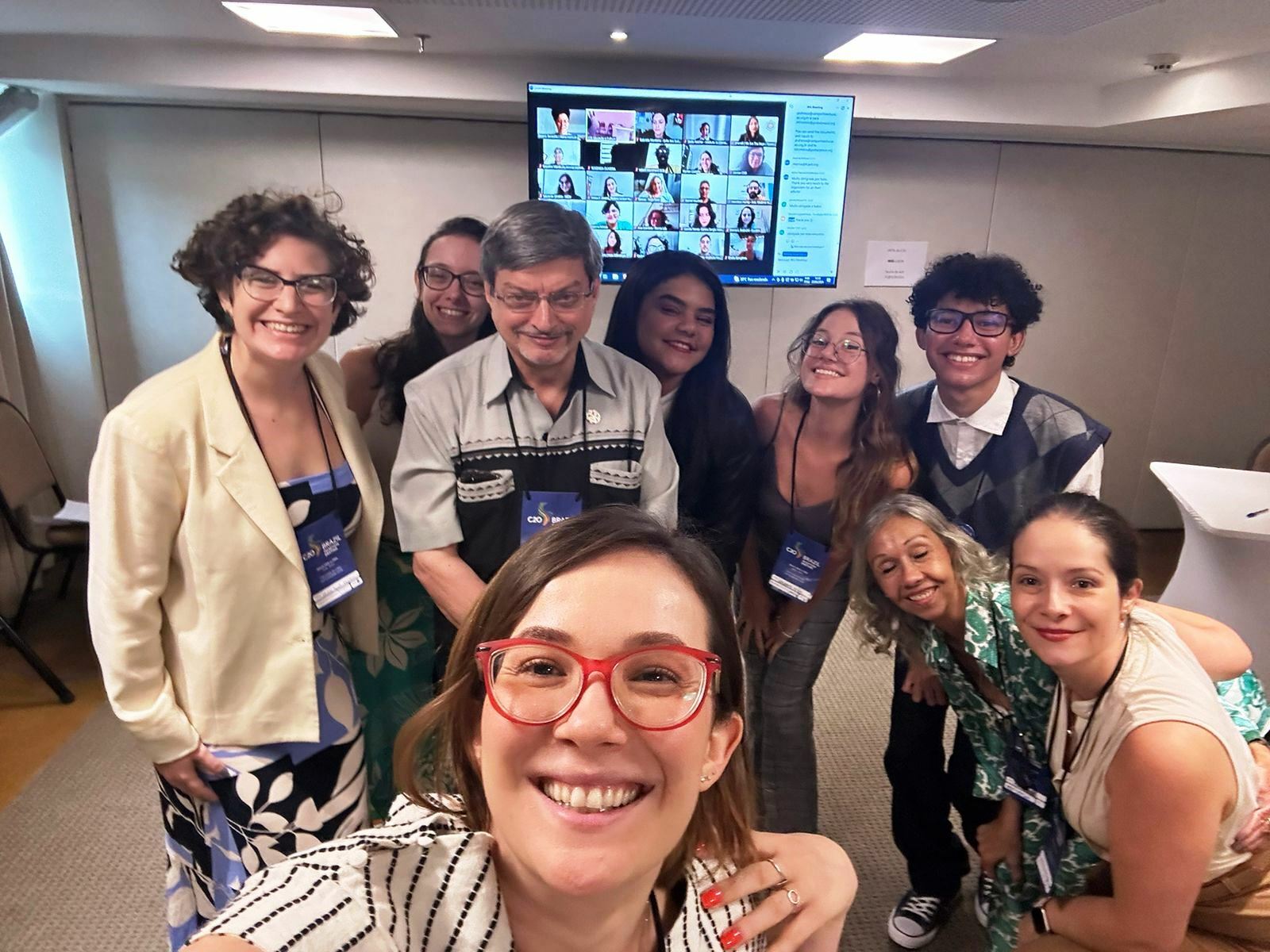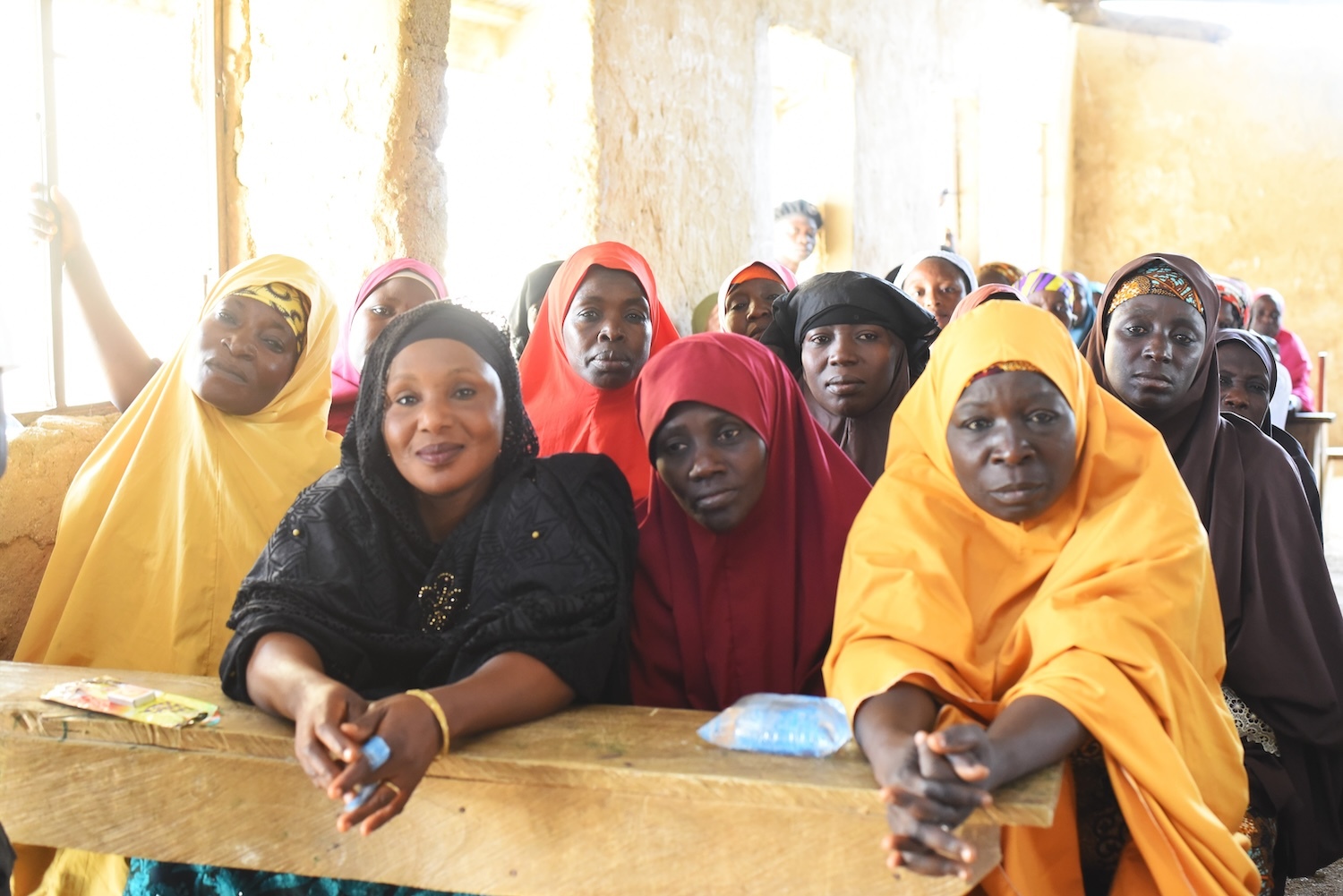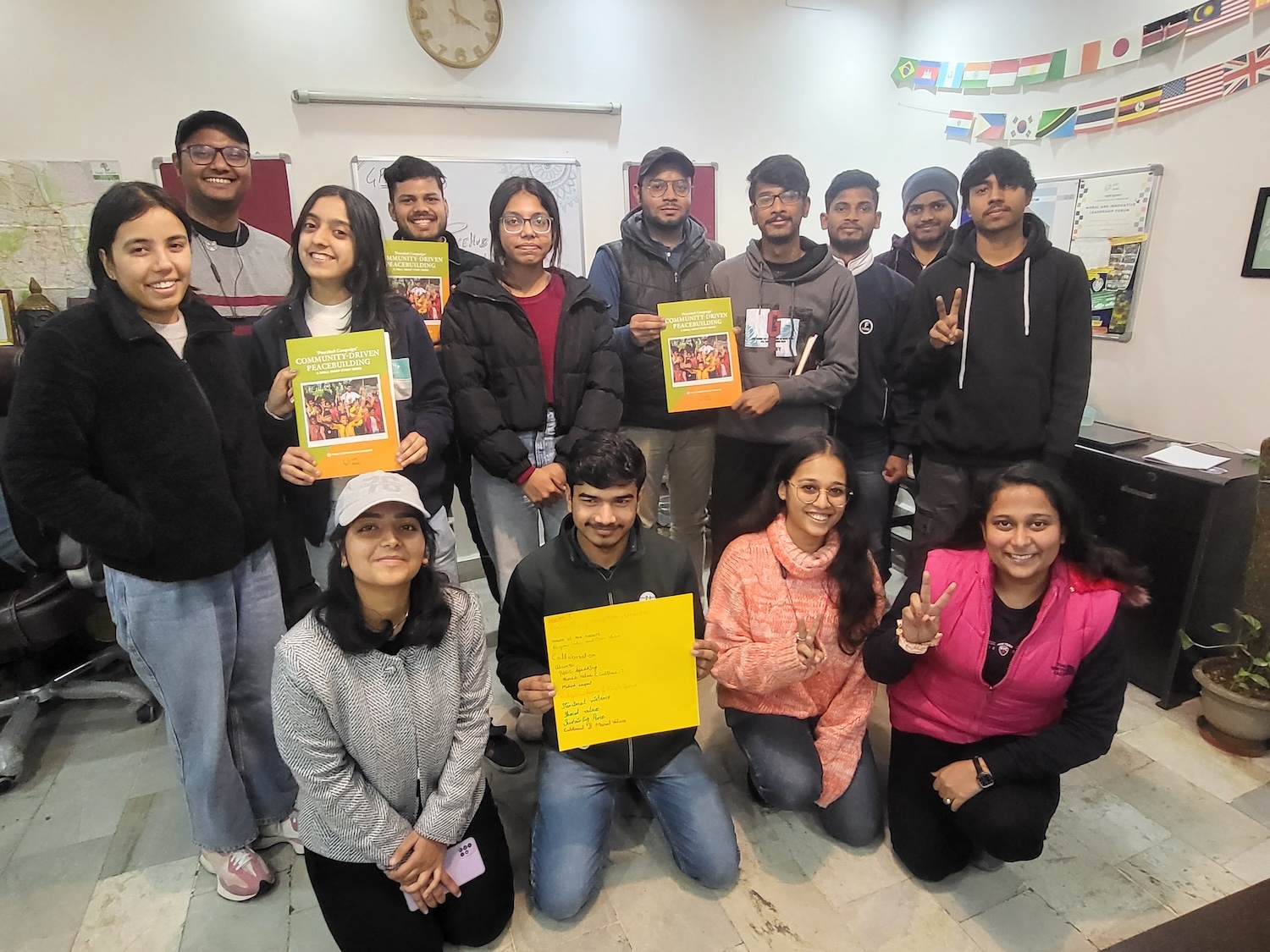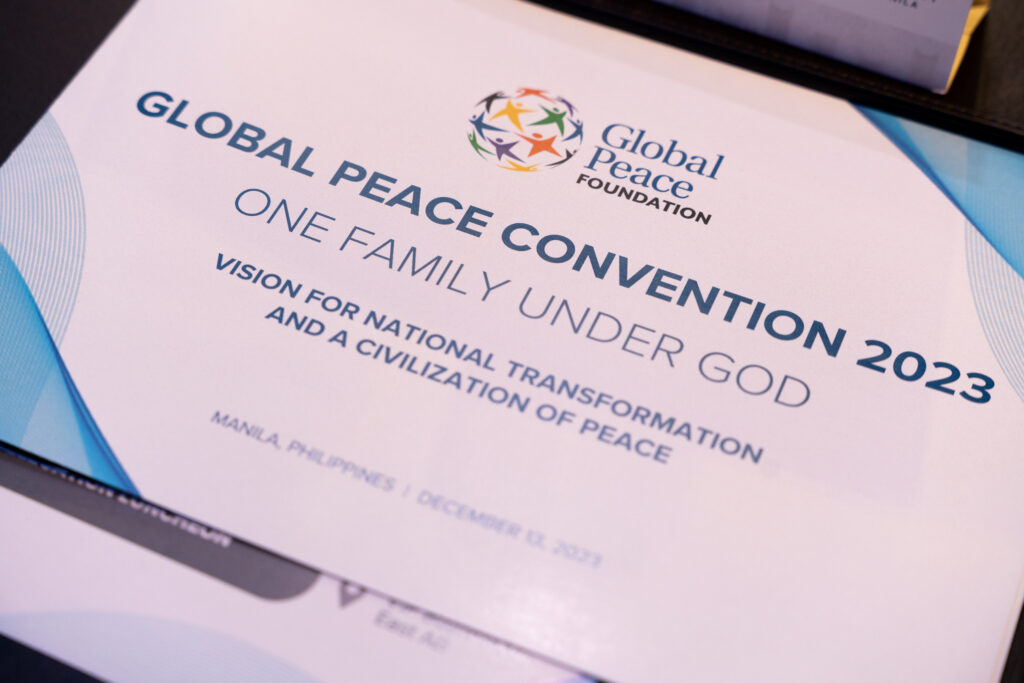
Global Peace Convention 2023
Three virtual sessions on the topic of community-driven peacebuilding were held in November during the 2023 Global Peace Convention (GPC). Highlighting “One Family under God: Vision for National Transformation and a Civilization of Peace,” these sessions went beyond simply understanding our shared human identity, to focusing on the next step of actions and engagements based on the shared values of our common humanity. The sessions were moderated by Rev. Fr. Canice Chinyeaka Enyiaka, International Program Development Specialist and Global Peace Foundation Regional Representative for Africa. From the role of spiritual leaders as peacebuilders, to the exciting new movement of an African Renaissance, faith leaders, scholars, and peace advocates shared their knowledge and insight, exploring universal principles and shared values based on our common humanity as the foundation for peace, reconciliation, and equitable development.
Our current global circumstances of the tragic suffering and deaths of those in Ukraine and the Middle East brought an intensity and seriousness to our discussions, knowing the trajectories of identity-based conflicts which lead to war. The significance of the GPC was a palatable undercurrent to every conversation. To maintain and never give up on hope when the world is in such despair is very challenging. We are nurturing the relationship of humanity as one family, and encouraging the emotions of connectedness to our human family, therefore our thoughts and prayers are with those who have lost their beloved family members and friends in today’s wars. Our work for peace, and the endeavor to uphold the sacredness of life is more important than ever.
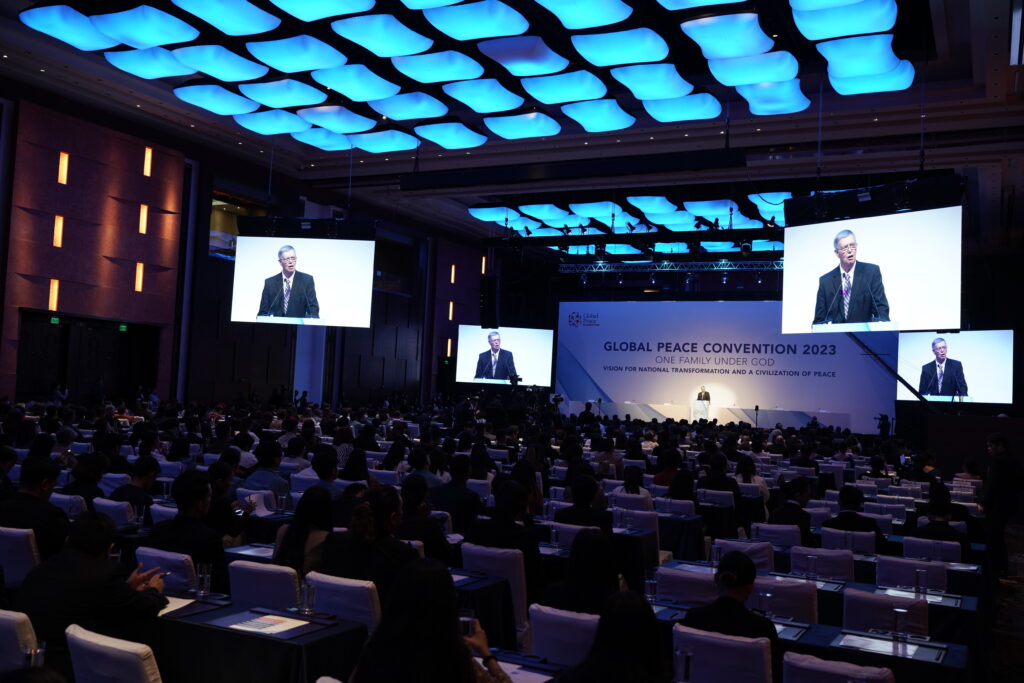
Global Peace Convention 2023
The November 8 virtual session, “The Role of Spiritual Leaders: Sowing the Seeds of Peace and Reconciliation,” presented insights and “on the ground” practices from distinguished scholars and faith leaders, including Swami Shantatmanda, Secretary of the Ramakrishna Mission in Delhi, India; Fr. Arnold M. Abelardo, Claretian Missionary Priest and the Director of SAKLAY Center in the Philippines; Associate Professor Dr. Chandra Setiawan, Vice General Chairman of The Supreme Court for the Confucian Religion in Indonesia; and Professor Dr. Subarna Lai Bajracharya, Vice Chancellor of Lumbini Buddhist University in Nepal.
The speakers affirmed that all faith and wisdom traditions embrace common principles and values, which can support lasting social cohesion and are central to an interreligious approach to peacebuilding. In diverse, pluralistic societies, unanimity of belief is neither necessary nor realistic, while ethical codes of conduct that uphold human dignity and our common humanity require us to act in ways that put those beliefs into practice. The speakers each shared moving personal stories of best practices of inclusive action, serving others regardless of their religion or ethnicity and how this expanded their own sense of compassion.
The panelists from Hindu, Christian, Confucian, and Buddhist traditions recognized the role that interreligious leaders play in fostering an environment of connectivity, respect, and empathy where diversity is valued. Respect, being present, building relations, and achieving solidarity through empathetic understanding are values that advance peace and are embraced by all traditions.
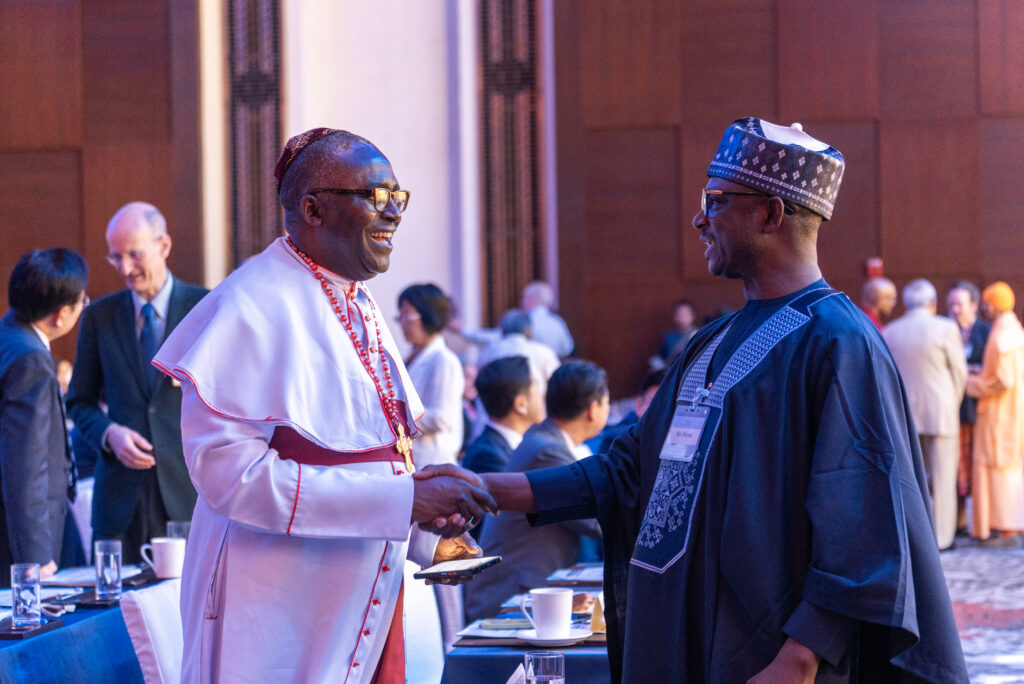
Global Peace Convention 2023
A second virtual forum, “African Renaissance: Key to Continental Peace and Equitable Development,” met on November 21, exploring post-colonial Africa’s struggles with securing sustainable peace and equitable development. The forum examined structures and conditions that can prevent the emergence of conflicts and the values that inspired self-determination and independence from foreign occupation and governance. Panelists called for a genuine African Renaissance leading to a Pax Africana based on the Bantu concept of Ubuntu, which stresses the interdependence of humans and one’s responsibility to one’s fellow humans. The forum advocated reaffirming African cultures, values, and spirituality in response to the continental challenges, and as a necessary path to lasting peace.
Featured panelists included Hajjat Mrs. Shamim Parker Khan, Chair of Tanzania Women’s Interfaith Network; Sheikh Nasib Musenene, Member of Rwenzori Region Interreligious Council; Ms. Joy Wandabwa, Finance and Administration Director of Programme for Christian-Muslim Relations in Africa; and Dr. Joseph Peter Ochogwu, Director of the Institute for Peace and Conflict Resolution, Nigeria. The panelists emphasized that peace based on GPF’s vision of One Family Under God and its universal principles and shared values is essential to creating equitable development and realizing a true African Renaissance.
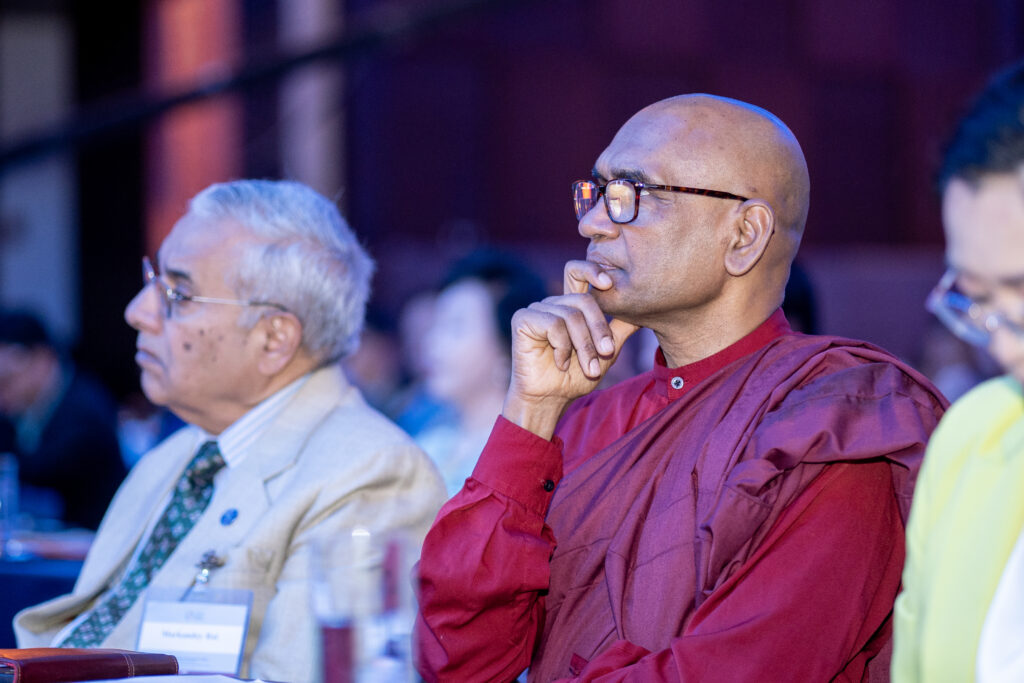
Global Peace Convention 2023
Building on the discussion from the second session, a third virtual forum, “African Renaissance: Key to Continental Peace and Equitable Development (Academic Community Focus),” was held on November 30. Distinguished scholars from various universities described the actions needed to create a reimagined African Renaissance. Actions discussed included the need for moral and ethical leaders grounded in universal principles and shared values, a competency-based education system that addresses the needs of the people, economic development, and increasing social media at the local level.
Panelists included Dr. Cosmas Nwokeafor, Dean of Graduate School at Bowie State University; Dr. Mohamed Camara, Chair of African Studies at Howard University; Dr. Chioma Diasy Onyige, Professor of Criminology at the University of Port Harcourt in Nigeria; Dr. Philliph Mutisya, Professor of Education at North Carolina Central University; and Dr. Zipporah Kaaria, Sr. Lecturer in the Department of Psychology at Kenya Methodist University.
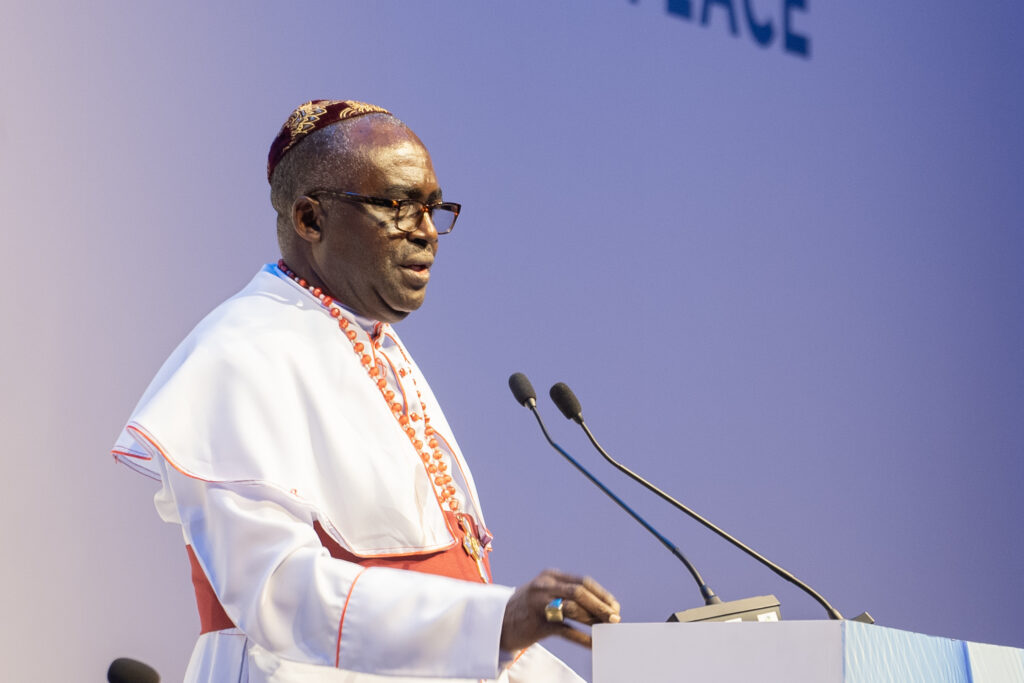
Global Peace Convention 2023
Other solutions offered by the panelists to create social cohesion and inclusivity included increasing the number of women leaders, engaging the African diaspora in reimagining the education system, and empowering youth with the skills and tools to become future moral and innovative leaders. In view of the enthusiasm of these African leaders discussing an African Renaissance, excitement is building for the Global Peace Leadership Conference, to be held in June 2024, in Kenya, which will have the theme, African Renaissance: Key to Continental Peace and Equitable Development.
Reinforcing the virtual discussions, an in-person session was conducted at the Educators Congress at Makati University on December 12. Mrs. Gail Hambleton, Sr. Program Specialist, Values-based Peacebuilding International for Global Peace Foundation, moderated the session “Empowering Global Citizens for Peace and Reconciliation Through Universal Principles and Values.” The session focused on the role of educational institutions in sowing the seeds of peace and reconciliation through our shared identity and our common humanity based on our aspirations to strive towards universal good and harmony.
Celebrated panelists included Rev. Fr. Canice Chinyeaka Enyiaka; Swami Shantatmanda; and Imam Dr. Talib M. Shareef, Masjid Muhammad, The Nation’s Mosque in Washington, D.C. Topics discussed included the important role of educators in developing values-based peacebuilding curricula, the role of interfaith collaboration in advancing peace education and the transformation of communities and nations, and the role of educators in supporting students to achieve their inherent and diverse abilities and skills.
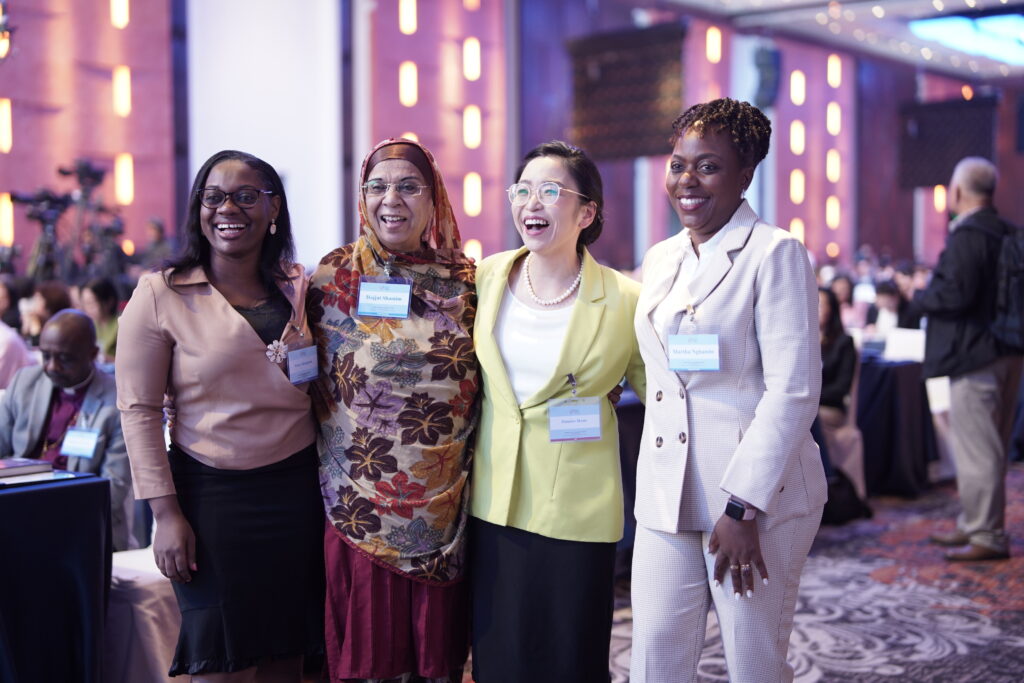
Global Peace Convention 2023
The virtual and in-person sessions held during the GPC and concluded with in-person plenary sessions in Manila on December 14, urged men and women to go beyond merely understanding our human identity to take affirmative steps to build cohesive societies honoring our common humanity. Faith leaders can become catalysts and lead the way in creating ethical communities and sustainable peace.
With faith leaders as catalysts, sustainable peace also involves the active and inclusive participation of everyone, as each one of us has the potential to make positive contributions towards building a peaceful society, starting with family and community. Initiatives will be launched as a result of solution-based strategic planning. Moral and ethical leadership, connectivity, relationship building, inclusivity, harmony, and consciousness are essential to achieving global and sustainable peace while fostering economic development. Peacebuilding is a community-driven effort. Everyone has a role regardless of race, gender, religion, ethnicity, or background. Community-driven peacebuilding is grounded in the vision of One Family Under God based on universal principles and shared values cultivated in our common humanity. As noted by Rev. Fr. Enyiaka at the conclusion of the first session, “We are one; we are one family under God.”
The 2023 Global Peace Convention is a signature bi-annual international convening of the Global Peace Foundation. Interactive sessions, workshops, and discussions with international experts, scholars, and field professionals addressed key issue areas, including Freedom of Conscience and Religion, Peace and Security, Women’s Leadership and Peacebuilding, Community-Driven Peacebuilding, Transforming Education, Youth Volunteerism and Service Learning, and Environmental Conservation. To view On-demand sessions from each track and plenary sessions, visit Global Peace Convention 2023

